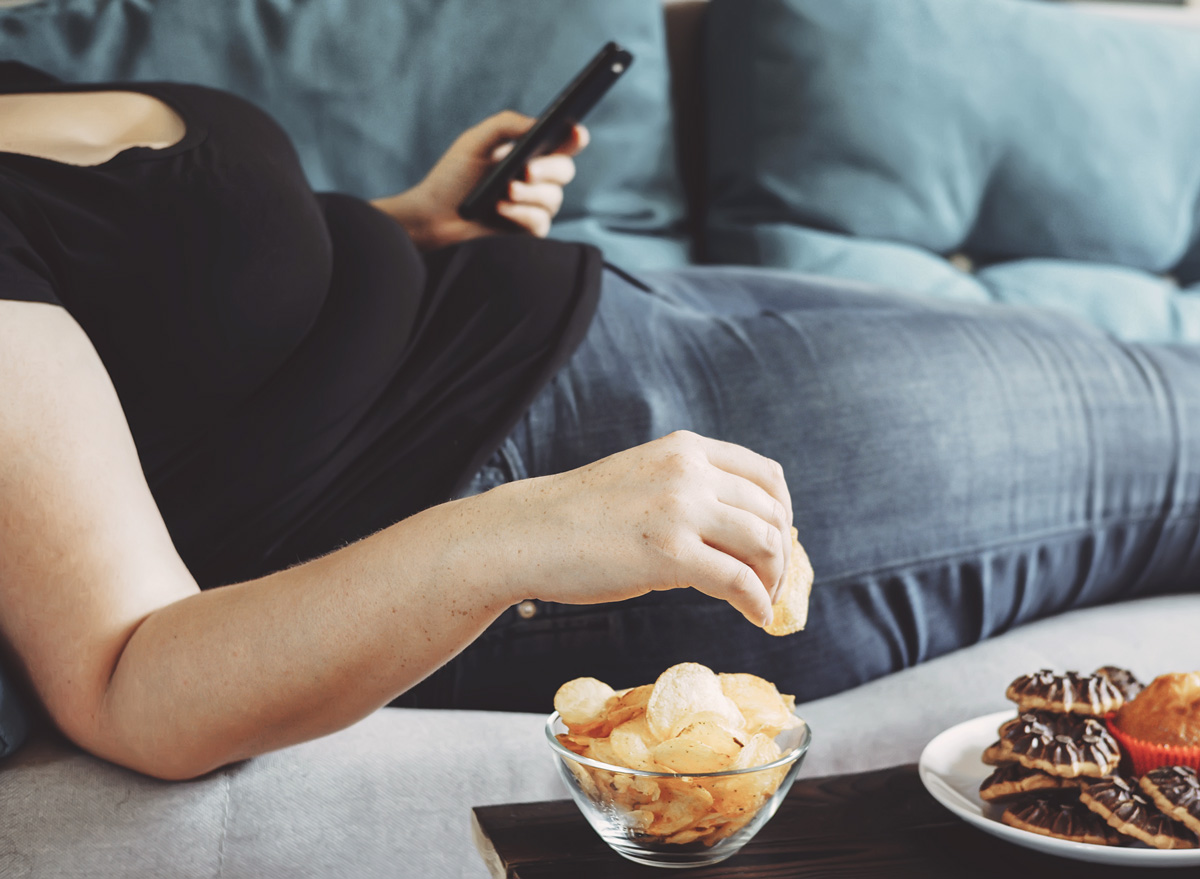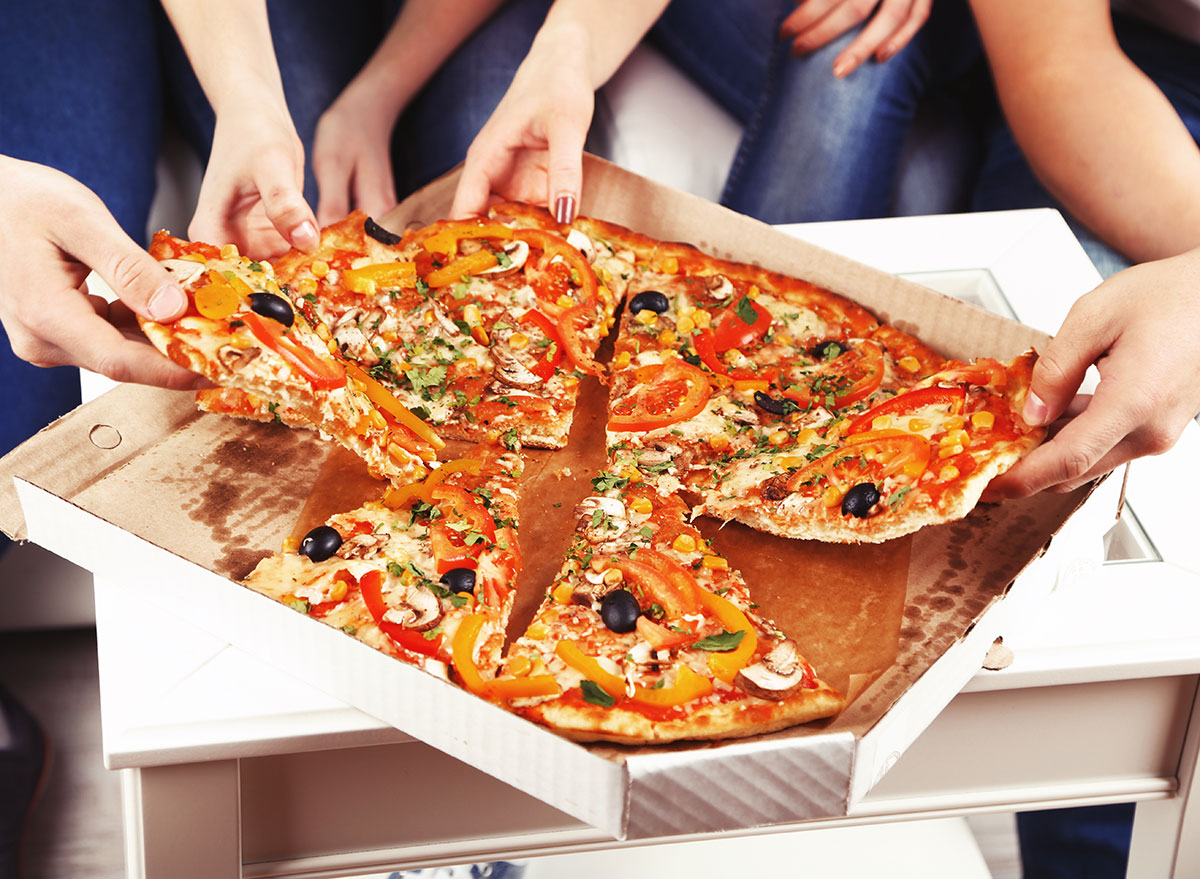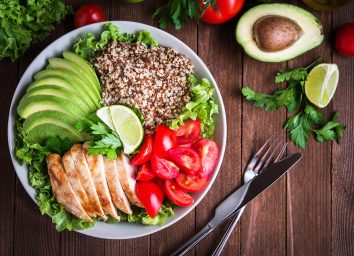It’s Impossible to Lose Weight Without Doing This, Say Experts

As far as our collective stress levels are concerned, the past year has been one for the record books. According to new research commissioned by the American Psychological Association, 78 percent of all American adults polled said that the coronavirus pandemic has become a “significant” stress in their lives. At the same time, across basically all age groups—from school-age kids to senior citizens—respondents reported enhanced feelings of loneliness, isolation, restlessness, misery, unhappiness, and depression.
“This survey confirms what many mental health experts have been saying since the start of the pandemic: Our mental health is suffering from the compounding stressors in our lives,” APA chief executive officer Arthur C. Evans Jr., Ph.D., noted in the poll’s announcement. “This compounding stress will have serious health and social consequences if we don’t act now to reduce it.”
This is all especially bad news for our collective diet, as well, given that medical researchers have long linked feelings of stress to overeating—and ultimately to what we’ve come accustomed to calling “emotional eating.” (Related: 21 Best Healthy Cooking Hacks of All Time.)
At its most basic, emotional eating is defined as eating for reasons other than hunger. “Emotional eating is a recurring, unconscious attraction toward foods that fulfill an emotional void or distracts you from what’s really bothering you,” Amy Kimberlain, RDN, LDN, CDE, registered dietitian nutritionist and spokesperson for the Academy of Nutrition and Dietetics, explained to Eat This, Not That!. “Yes, this may include emotions ranging from stress, sadness, frustration, and anxiety, to name a few.”
Medical experts say that emotional eating is one of the single biggest factors standing between you and your weight-loss goals. “It is almost impossible to lose weight without addressing emotional eating,” says Afrosa Ahmed, MBBS, MRCGP, DCH, a GP based in the UK.
Why is it so harmful? Well, emotional eating essentially rewires the brain to use food as a coping mechanism. “Often, these are comfort foods, such as fast food or sugary snacks, which do little to keep our diet on track,” says Ashley Rademacher, CPT. “Since these foods do not provide the desired effect, it creates an even more negative headspace if you often feel guilty about the foods that you eat.”
If this vicious cycle sounds familiar—negative feelings that prompt unhealthy habits that prompt more negative feelings—read on, because we’ve reached out to some of the top health experts for a handful of tips for navigating your complicated relationship with food. (For even more ways to tackle head-on the insidious effects of emotional eating, see here.) And for more great weight-loss advice, make sure you avoid these 100 Unhealthiest Foods on the Planet.
Start counting backward from 1,005 by sevens.

“If you look at how emotions work, almost all eating thoughts can be considered ’emotional’ thoughts in that the impulses for hunger and thirst are in the older parts of our brains—and not from the more logical parts,” says David Bennett, a certified hypnotist and EFT practitioner.
To fight off the urge to eat, he advises you to activate the logical parts of your brain with a really challenging task. “Count backward from 1,005 by sevens,” he says. “This concentration will often cause the emotional parts of the brain to cool down after about 20-30 seconds.” (Related: 9 Lazy Ways to Lose Weight.)
Eat your favorite foods.

“Don’t deprive yourself of your favorite foods,” says Heidi Strohmaier, PhD, LP. “Setting rigid rules only makes you want that forbidden food even more. Instead, enjoy your favorite foods in moderation. That way, you’ll be less likely to overdo it on the sweets when emotionally upset.”
Turn on Netflix.

“Many people turn to food out of boredom,” says Jack Anderson, founder of Sports Fitness Advisor. “Find activities to rely on when you begin to feel bored. Exercise is a great option for people in this situation.”
But you don’t have to replace that unhealthy food with a trip to the gym. “Give yourself a break from your emotions,” says Marie Elena Bitar, MPH, RD and founder of Beyond Food Rules. “That could mean reading a book, watching a movie, spending time outside, listening to a podcast, painting, blasting your favorite music, or playing with a furry friend.” And for some super fast exercises you can instantly do, see this list of Amazing 30-Second Workout Moves.
Welcome your emotions.

“Allow yourself to feel your emotions instead of pushing them away,” says Heidi Strohmaier, PhD, LP. “It’s important to experience difficult emotions, especially during this challenging year. Refusing to feel your emotions only works in the short-term; it is not an effective long-term strategy.”
Only if you allow yourself to address your emotions head-on will you learn how to recognize them and make smarter, more rational decisions. “Cultivate an awareness of this habit so you can recognize it and intervene proactively,” Strohmaier says.
Drink a lot of water.

“Stay hydrated with water or low-calorie beverages,” says Strohmaier. “Our minds often mistake hunger for thirst.”
Show a little self-love.

“Emotional eating typically results in us being disconnected from our body, so we can eat like a bottomless pit and not feel nourished,” says Katie Mack, BS Kinesiology, NSCA-CPT, NASM. “If we are emotionally eating, it’s usually from a place of not feeling loved, not having pleasure or fun in our lives, not being able to physically or emotionally take care of ourselves, not having stress management skills, and not being able to think rationally.”
Her advice? “Awareness—of self, of thoughts—and learning what you need at any moment. If your method of dealing with stressors is food and that’s the only thing you know, it’s going to take awareness first and foremost to break that.” Then you need to reclaim a connection with your body, by fostering feelings of self-love and self-care. And for more great weight loss advice you can use, read up on the 200 Greatest Weight Loss Tips Ever.
Read the original article on Eat This, Not That!








